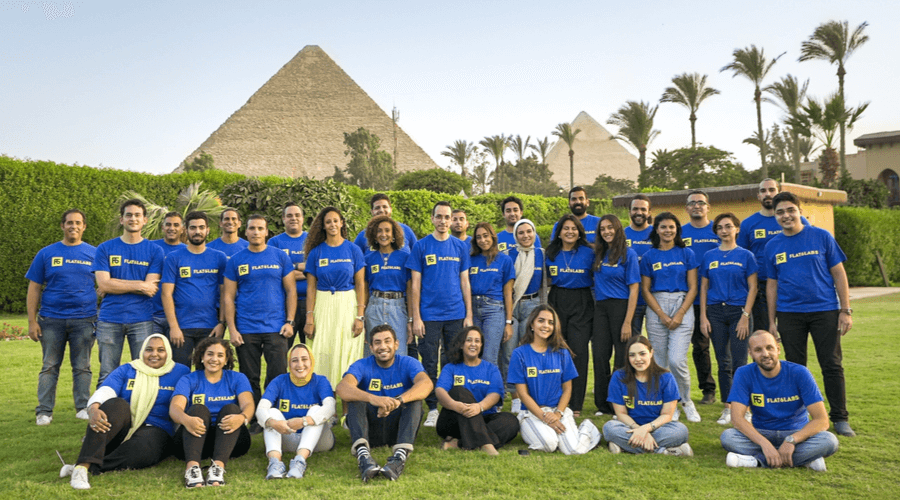Flat6Labs: A decade of accelerating startups

Once Hany Sonbaty and Ahmed Alfi launched their venture capital firm, Sawari Ventures, in Egypt back in 2010, the pair were often hounded by enthusiastic entrepreneurs who sought their investment, advice and mentorship.
While they were happy to support and cater to the nascent entrepreneurship sector in the country, for Sonbaty, the constant vying for his attention proved to be somewhat draining.
“I was always annoyed, they would corner me at conferences and say ‘if only I had money, I would be able to do this’,” says Sonbaty, who thought an accelerator programme would be best for these entrepreneurs to see them “prove their point”.
“We realised there was a grassroots level of entrepreneurship that nobody was looking at,” he says. “Those entrepreneurs had a lot of energy and ambition, they were much younger than the ones we were looking at [for Sawari Ventures] and had nothing to cater for their financing needs.”
And so, the pair decided to launch an accelerator, initially called Sawari Ventures Lab and later renamed to Flat6Labs on the advice of the logo designer, who incorporated the address into the name.
“The whole point was to create a process or programme for seed stage startups with the explicit aim of helping them take the first step,” says Sonbaty. “We wanted to lower their psychological barrier and help them breakdown that first step into multiple smaller steps over four months.”
Less than a fortnight after Sawari Ventures announced the plan for Flat6Labs, the January 2011 revolution kicked off in Egypt, with millions of Egyptians taking to the streets demanding a change in the status quo.
“We had the location, neither me [nor] Alfi saw any real reason not to do this. The need for it was there before and after the Arab Spring,” says Sonbaty.
It would be another six months before Flat6Labs could be launched and they enlisted Ramez El-Serafy to lead the accelerator. Today, El-Serafy has held the chief executive position for a decade, seeing more than two thousand entrepreneurs go through the accelerator, expand to six countries and grow his team to 68 people.
The initial cohort was by invitation only and included five startups, none of which managed to survive.
“We called it cycle zero because it was more experimental. Even from the second cycle, only one survived,” says El-Serafy. “[Cycle zero] was optimised for interesting concepts, advanced tech products and solutions. We decided to take startups that had advanced tech that could work outside Egypt, but that wasn’t the best idea and that was the first lesson we learned.”
When choosing the initial cohorts, the team at Flat6Labs focused on the level of innovation, the founding team and then market fit.
This was back when internet penetration stood at 25.6 per cent in Egypt according to the World Bank and only four million were on Facebook and fewer than 150,000 on Twitter. While the Arab Spring crushed the economy of the country and stagnated the development of the startup ecosystem, it did encourage more Egyptians to go online and sign up to social media. By 2012, internet penetration grew to 38 per cent and close to 11 million Egyptians were on Facebook.
So Flat6Labs shifted its focus when it came to selecting startups for the next round of cohorts and now looked at the team, followed by market fit and then product innovation.
“By the second cycle, we realised it was all about the founder,” says El-Serafy. “If they have the drive and passion to build something and learn and adapt and listen to feedback and know how to scale and be agile – that’s it. Once you’ve found that founder it’s like a goldmine.”
By the second cohort, Flat6Labs had nailed its formula and attracted more startups to its accelerator. Graduates from its 2012 cohort who are still in operation include Taskty, PushBots, Nafham and one of Flat6Labs’ most famous graduates, Instabug, which eventually relocated to Silicon Valley. Arguably, its biggest success is Harmonica, which was acquired by Match.com group in 2019.
The success of Flat6Labs in Cairo attracted the interest of others in the region keen to set up an accelerator in their own countries and so El-Serafy and his team expanded, initially setting up in Jeddah and then in Abu Dhabi.
“We became exposed to many more markets and we ourselves evolved as a platform. This brought a lot of maturity to our model,” says El-Serafy.
Today, Flat6Labs operates across six cities in the region, operating three different programmes and to date, has supported 1,105 startups, which have gone onto create almost 3,400 direct jobs. While Cairo remains its home, only 20 per cent of the startups that graduate from its programmes are based in Egypt.
“We branched out because a lot of companies in the future will be built cross-border. It adds a tremendous benefit and advantage to us if you have expertise that is cross border,” says Sonbaty. “There is a lot of interest on a local basis, the Saudis want to develop a Saudi ecosystem for example, but that doesn’t lend itself to a regional asset class.”
This regional focus is what will power the next 10 years of Flat6Labs, with the company looking to set up in Africa over the next few years. The team is also experimenting with adding virtual elements to its programmes, having been forced to go online last year, to reach more emerging markets.
“We believe there is much more to do in Africa and it’s something we’re keen to explore over the next few years in terms of funding and programmes. We believe we have a model that works very well for emerging market founders and stakeholders. It worked in the Mena region with all the challenges from the Arab Spring to conflicts, after seeing all of that, we can do anything, anywhere,” says El-Serafy.


